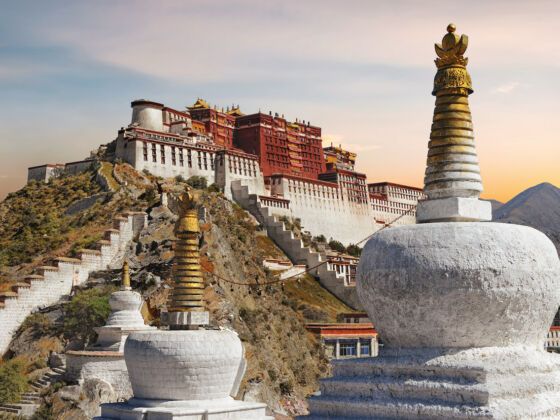It’s nearly 9:30 am in Macleod Ganj, and I haven’t even had my coffee yet, and for a Canadian, this is a serious predicament. Even the backpackers and the trendy young Tibetans are up by now, enjoying a morning latte at the Malabar café.
I have just woken my driver from sleep with a desperate howl: “Move it! We’re gonna be late!” This hysteria, I think, is mostly unheard of in the temporary home of the Buddhist Tibetan government in exile…how very un-zen of me.
